#king peter ii of yugoslavia
Explore tagged Tumblr posts
Text

King George VI and his godson King Peter II of Yugoslavia outside Buckingham Palace, July 16, 1941. King Peter had arrived in London in June, where he joined other governments in exile from Nazi-occupied Europe. // British Pathé
‘I honored and respected him for the advice and sympathy he had given me as a refugee king taking sanctuary in his country. I know that he, too, in his turn, had an affection for me, and it was as “Uncle Bertie” that he had asked me to regard him.’
KING PETER II OF YUGOSLAVIA - A King’s Heritage (1954)
‘I am his “Koom”, a sort of permanent godfather in Serbia, & I held him at his christening. So I must look after him here. Perhaps it was destiny.’
KING GEORGE VI - diary entry (June 22, 1941)
43 notes
·
View notes
Text

7 notes
·
View notes
Text

King Peter II Karađorđević of Yugoslavia
Yugoslav vintage postcard
#postal#historic#ansichtskarte#yugoslav#sepia#vintage#tarjeta#peter#briefkaart#photo#king#peter ii karađorđević#yugoslavia#postkaart#karaorevi#ephemera#postcard#postkarte#photography#carte postale
10 notes
·
View notes
Text
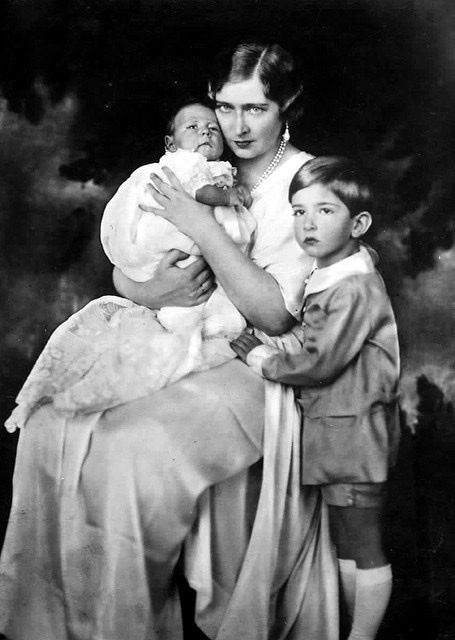
˚₊‧꒰ა ☆ ໒꒱ ‧₊˚
Queen Marie of Yugoslavia with her sons, Crown Prince Peter and new born Prince Tomislav in 1928. 💝🇷🇸
#finally posting about the royal family of my country 🥰🥰#queen marie of yugoslavia#king peter ii#prince tomislav#crown prince peter#serbian royal family#serf#serbia#karadjordjevic#karadjordjevici#karadjordjevic dynasty#romanian royal family#house of hoenzollern-sigmaringen#princess marie
15 notes
·
View notes
Photo





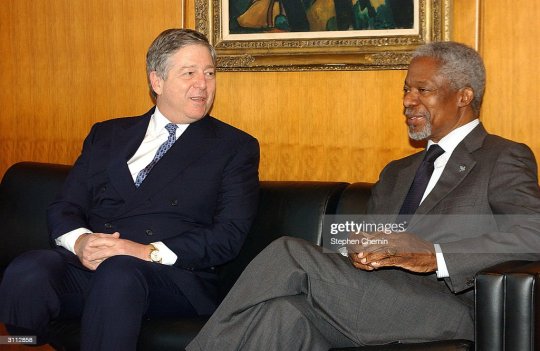
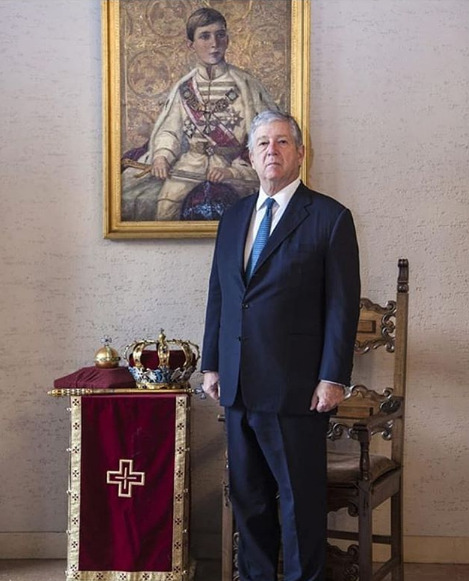


Alexander, Crown Prince of Yugoslavia
Born: July 17, 1945, Claridge's, Mayfair, London Physique: Average Build Height: 6′ 1″
Alexander, Crown Prince of Yugoslavia, is the head of the House of Karađorđević, the former royal house of the defunct Kingdom of Yugoslavia and its predecessor the Kingdom of Serbia. Alexander is the only child of King Peter II and his wife, Princess Alexandra of Greece and Denmark. He held the position of crown prince in the Democratic Federal Yugoslavia for the first four-and-a-half months of his life, until the declaration of the Federal People's Republic of Yugoslavia later in November 1945, when the monarchy was abolished. In public he claims the crowned royal title of "Alexander II Karađorđević" as a pretender to the throne.
The twice married with three sons, Alexander is known for his support of monarchism and his humanitarian work. He's another royal I spotted at His Majesty Charles III's coronation that I now want to do.
86 notes
·
View notes
Text
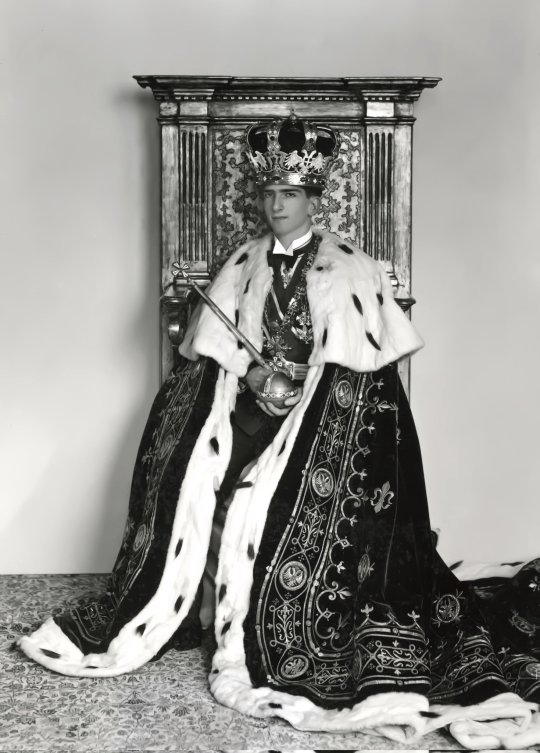
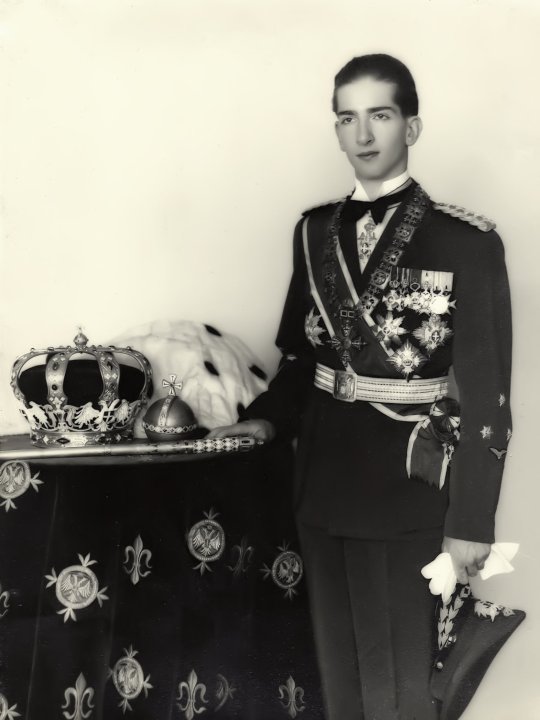
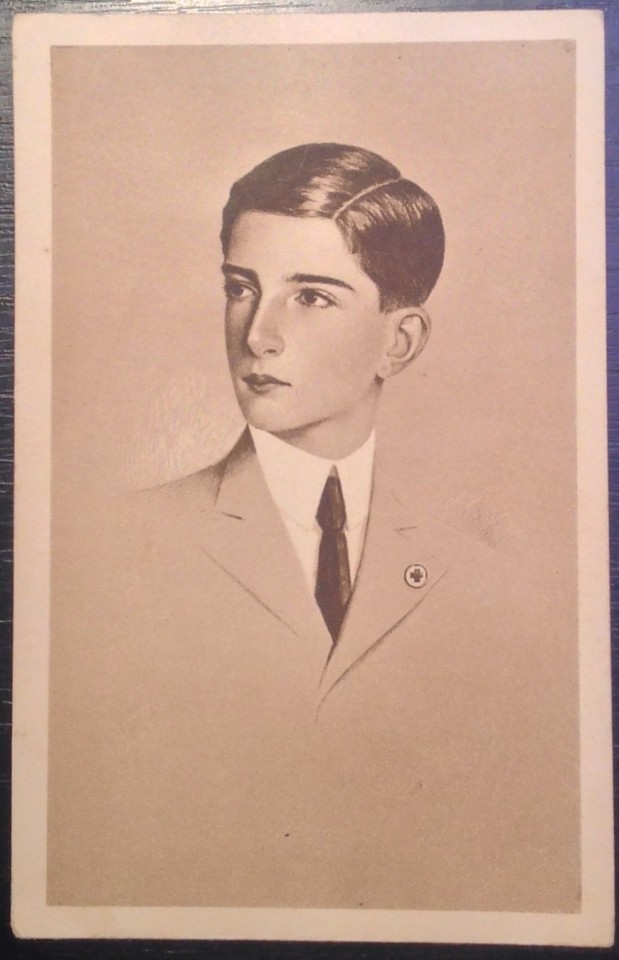
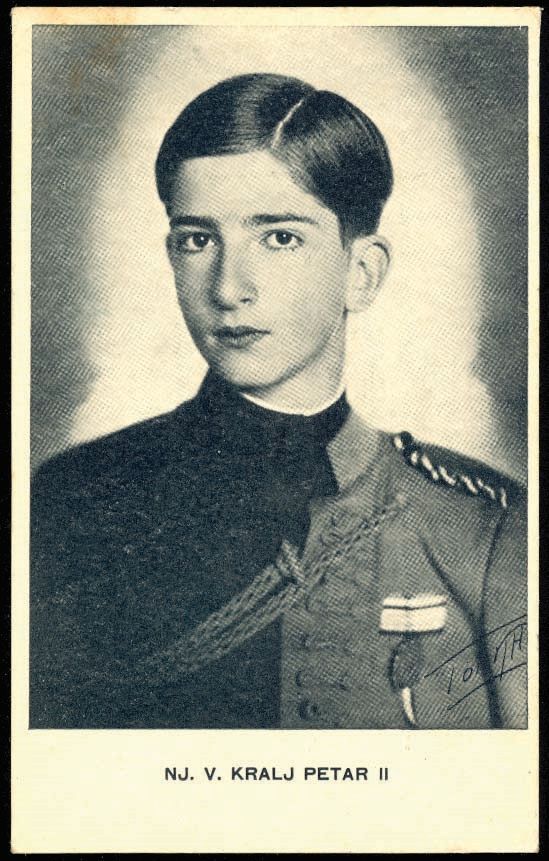
On this day exactly 100 years ago King Peter II of Yugoslavia was born, first born son of King Alexander and Princess Maria of Romania.
26 notes
·
View notes
Note
Can you pls talk about king Alexander I of Yugoslavia & his wife mignon.
Does he was loyal to her? Did they had a loving marriage?.
I tried so hard to find some info but it's so hard!😭
Hi! Of course, I’ll try to, to the best of my knowledge.
I’m not entirely convinced whether the match was one of true love or not, but I do believe the two had respect for one another.
Alexander had fallen in love with Tatiana, Tsar Nicholas II’s second daughter, when he was a child, and he intended on marrying her, but his marital aspirations came crumbling when the Romanovs were slaughtered by the Bolsheviks. To quote Hannah Pakula, “he never fell in love again”. Mignon, too, had declared she was never going to marry amidst the marriage events of her siblings. In spite of Alexander’s heartbreak, he still expressed his wish for “practical matters, such as the consolidation of his dynasty”.
However, the idea of a marriage between Mignon and Alexander came through the auspices of Romanian politician, Take Ionescu, who supported Balkan unity. He spoke to Mignon about the “lonely young man, an orphan with a mentally unstable brother, a poor rich king in an empty palace, who was looking for a queen to brighten his life and give him a family”, which intrigued the ever so kindhearted Romanian princess.
The following passages are cited from Hannah Pakula’s book:
[…] Alexander vas invited to Sinaia for the Christmas holidays, "the time of all the year," according to the Princess, "when it must be most sad to be alone without family." A week or so after New Year's, Mignon took her suitor through the snow-covered forests on a tour of Castle Peles. They were gone some time. When they returned, she was leading him by the hand. The King of Yugoslavia spoke no English. "Mother, we have arranged it," said Mignon, who burst into tears and ran quickly out of the room.
Queen Marie was concerned. Although she knew Alexander had an excellent personal reputation and that the alliance would be extremely popular both countries, he was, in her words, "an outsider of unsure race." Shy, communicative, the King of Yugoslavia volunteered nothing about himself. Marie could not understand how her daughter could have accepted him so readily without knowing him better […]. The Princess herself seemed to have no anxieties, announcing her new status with pride to everyone around and insisting upon telegraphing government officials herself.
I interpret Mignon’s eagerness to become engaged with Alexander as a show of her empathetic nature, but also of attraction. Upon their marriage celebrations, Alexander purchased an incredibly exquisite but expensive set of jewels for his soon-to-be wife.
Now… I haven’t found much information about their actual marriage. It’s a rather vague subject. However, I think it was an agreeable one, but not exclusively loving. His mother-in-law described Alexander as “capricious”, and Mignon as “having developed a dependency on other women”. Please note that it was believed that Mignon was romantically interested in women and she allegedly had an affair with a former classmate from Heathfield School, Rosemary Cresswell, also a lady-in-waiting to her, after her husband's death. In terms of Alexander’s loyalty, there was an incident involving his sister-in-law, Elisabeth, which took place soon after Peter’s birth. Elisabeth was being very flirtatious towards Alexander, a fact which greatly bothered Mignon, but it was never mentioned if it was mutual. I haven’t read about any other cases of “infidelity”.
The only reaction on Mignon’s part after Alexander’s death that I was able to find was the following, noted by Marie of Romania: “She was extremely calm and wonderfully dignified, but her hands were shaking”.
I wish I could further elaborate, but I only possess so much information on the subject you’ve mentioned.
Unfortunately, as you’ve mentioned, resources (especially primary resources, like their diaries which have yet to be published, if they ever will be) on them are rather limited. However, I’ve managed to gather a few, though I’m afraid they might not be very accessible, since they’re not all available in English, but here they are nevertheless:
English language sources:
• The many works of Stephen Graham on King Alexander of Yugoslavia, such as Alexander of Yugoslavia: The Story of the King who was Murdered at Marseilles. You can read it here. Also, Alexander of Yugoslavia: The Strong Man of the Balkans, which you can read here.
• The website of the Royal Family of Serbia, that you can access here.
• The Last Romantic: A Biography of Queen Marie of Romania by Hannah Pakula. You can read it here.
• And of course, The story of my life by Queen Marie of Romania. Her memoirs are always very insightful and useful. You can read them here.
Romanian language sources:
• Mignon. Principesa României, Regina Iugoslaviei by Diana Mandache. It’s a very solid piece of work on Mignon, though, unfortunately, the biography has yet to be digitalised and translated into English.
• A ten page article on Mignon also written by Diana Mandache and published by the Romanian National Museum of History Journal that you can read here. It’s in Romanian, but you can use Google Translate to read it, if you’ve got the patience.
Serbian language sources:
• Marija Karađorđević - Kraljica Majka by Danica and Srđan Čolović.
• Marija Karađorđević: Kraljica Plem by Vojislava Latković.
Hope this helps :D
14 notes
·
View notes
Text


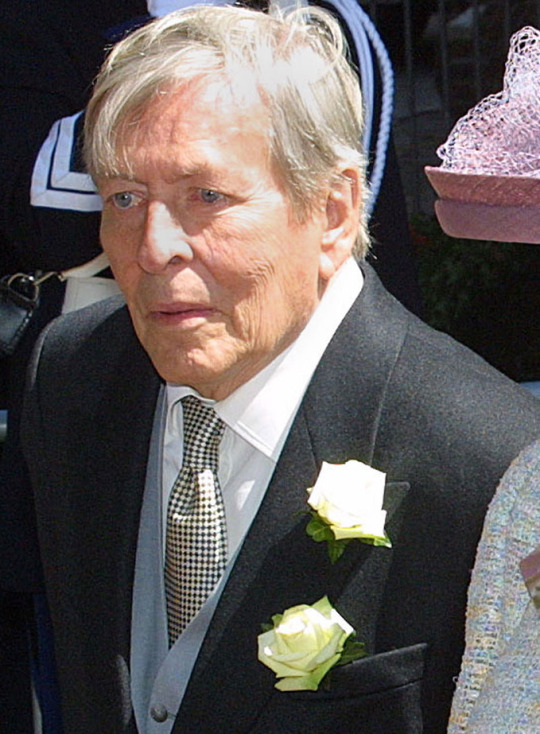

Royal Birthdays for today, September 6th:
Ivan V, Tsar of Russia, 1666
Peter II, King of Yugoslavia, 1923
Claus von Amsberg, Prince Consort of the Netherlands, 1926
Hisahito, Japanese Prince, 2006
9 notes
·
View notes
Text


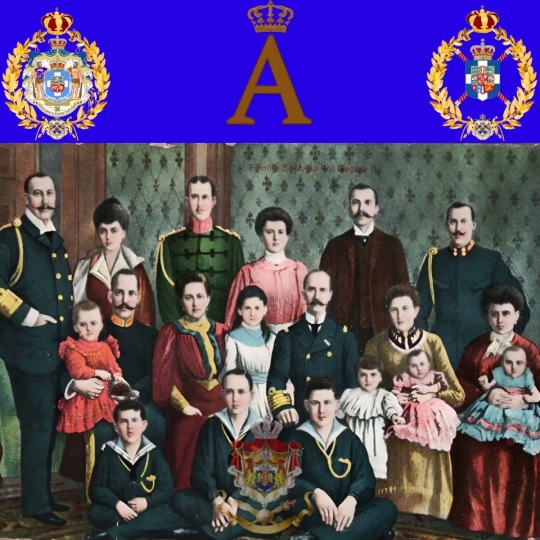

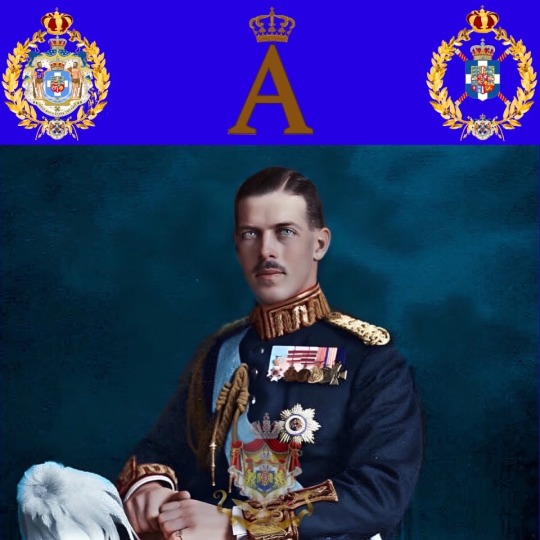



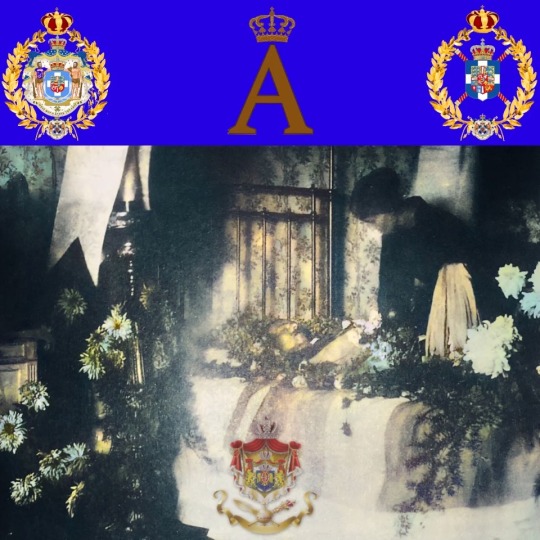
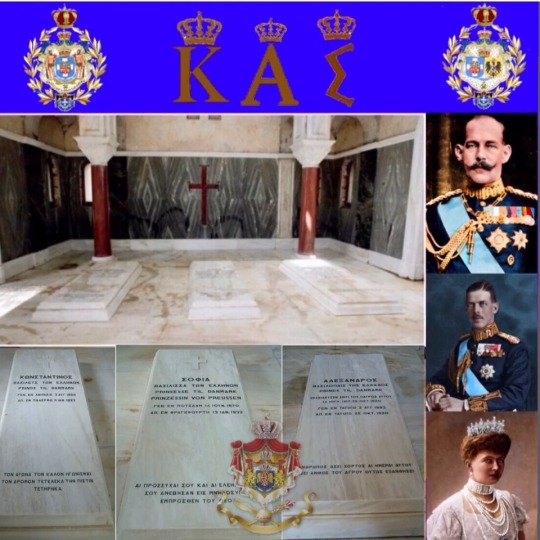
The 25th of October is 103 years since the death of HM King Alexander I of Hellenes (1 August 1893 – 25 October 1920)
Alexander was King of Greece from 11 June 1917 until his death in 1920.
The second son of King Constantine I, Alexander was born in the summer palace of Tatoi on the outskirts of Athens. He succeeded his father in 1917, during World War I, after the Entente Powers and the followers of Eleftherios Venizelos pushed King Constantine and his eldest son, Crown Prince George, into exile. Having no real political experience, the new king was stripped of his powers by the Venizelists and effectively imprisoned in his own palace. Venizelos, as prime minister, was the effective ruler with the support of the Entente. Though reduced to the status of a puppet king, Alexander supported Greek troops during their war against the Ottoman Empire and Bulgaria. Under his reign, the territorial extent of Greece considerably increased, following the victory of the Entente and their Allies in the First World War and the early stages of the Greco-Turkish War of 1919–1922.
Alexander controversially married the commoner Aspasia Manos in 1919, provoking a major scandal that forced the couple to leave Greece for several months.
The government allowed the couple to return to Greece in mid-1920. Although their marriage was legalized, Aspasia was not recognized as queen, but was instead known as "Madame Manos".At first, she stayed at her sister's house in the Greek capital before transferring to Tatoi,and it was during this period that she became pregnant with Alexander's child.
Alexander's daughter by Aspasia Manos, Alexandra , was born five months after his death. Initially, the government took the line that since Alexander had married Aspasia without the permission of his father or the church, his marriage was illegal and his posthumous daughter was illegitimate. However, in July 1922, Parliament passed a law which allowed the King to recognize royal marriages retroactively on a non-dynastic basis.That September King Constantine I —at Sophia's insistence—recognized his son's marriage to Aspasia and granted her the style of "HRH Princess Alexander of Hellenes Princess of Denmark ".Her daughter (Constantine I's granddaughter) was legitimized as HRH princess of Greece and Denmark, and later married King Peter II of Yugoslavia in London in 1944. They had one child: Alexander, Crown Prince of Yugoslavia.
Alexander visited the newly acquired territories of West Thrace, and on 8 July 1920 the new name for the region's main town—Alexandroupoli (meaning "city of Alexander" in Greek)—was announced in the king's presence. The city's previous name of Dedeagatch was considered too Turkish
On 2 October 1920, Alexander was injured while walking through the grounds of the Tatoi estate. A domestic Barbary macaque belonging to the steward of the palace's grapevines attacked or was attacked by the king's German Shepherd dog, Fritz,and Alexander attempted to separate the two animals. As he did so, another monkey attacked Alexander and bit him deeply on the leg and torso. Eventually servants arrived and chased away the monkeys,and the king's wounds were promptly cleaned and dressed but not cauterized. He did not consider the incident serious and asked that it not be publicized.
That evening, his wounds became infected; he developed a strong fever and sepsis set in. His doctors considered amputating his leg, but none wished to take responsibility for so drastic an act. On 19 October, he became delirious and called out for his mother, but the Greek government refused to allow her to re-enter the country from exile in Switzerland, despite her own protestations. Finally, the queen dowager, Olga, George I's widow and Alexander's grandmother, was allowed to return alone to Athens to tend to the king. She was delayed by rough waters, however, and by the time she arrived, Alexander had already died of sepsis twelve hours previously at a little after 4 p.m. on 25 October 1920.The other members of the royal family received the news by telegram that night.
Two days later, Alexander's body was conveyed to Athens Cathedral, where it lay in state until his funeral on 29 October. Once again, the royal family were refused permission to return to Greece, and Queen Olga was the only member who attended.Foreign powers were represented by the Prince Regent of Serbia with his sister Princess Helen wife of John Constantinovich of Russia, the Crown Prince of Sweden with his uncle Prince Eugene, Duke of Nericia, and Rear-Admirals Sir George Hope of the United Kingdom and Dumesnil of France, as well as members of the Athens diplomatic corps.
After the cathedral service, Alexander's body was interred on the grounds of the royal estate at Tatoi.The Greek royal family never regarded Alexander's reign as fully legitimate. In the royal cemetery, while other monarchs are given the inscription "King of the Hellenes, Prince of Denmark", Alexander's reads "Alexander, son of the King of the Hellenes, Prince of Denmark. He ruled in the place of his father from 14 June 1917 to 25 October 1920."According to Alexander's favorite sister, Queen Helen of Romania, this feeling of illegitimacy was also shared by Alexander himself, a sentiment that helps explain his mésalliance with Aspasia Manos
Την 25η Οκτωβρίου συμπληρώνονται 103 χρόνια από τον θάνατο του βασιλιά των Ελλήνων Αλέξανδρου Α΄ (1 Αυγούστου 1893 – 25 Οκτωβρίου 1920)
Ο Αλέξανδρος ήταν βασιλιάς της Ελλάδας από τις 11 Ιουνίου 1917 μέχρι το θάνατό του το 1920.
Ο δεύτερος γιος του βασιλιά Κωνσταντίν��υ Α΄, ο Αλέξανδρος γεννήθηκε στο θερινό ανάκτορο του Τατοΐου στα περίχωρα της Αθήνας. Διαδέχτηκε τον πατέρα του το 1917, κατά τη διάρκεια του Α' Παγκοσμίου Πολέμου, αφού οι δυνάμεις της Αντάντ και οι οπαδοί του Ελευθέριου Βενιζέλου ώθησαν στην εξορία τον βασιλιά Κωνσταντίνο και τον μεγαλύτερο γιο του, τον διάδοχο Γεώργιο. Μη έχοντας πραγματική πολιτική εμπειρία, ο νέος βασιλιάς αφαιρέθηκε από τις εξουσίες του από τους βενιζελικούς και ουσιαστικά φυλακίστηκε στο παλάτι. Ο Βενιζέλος, ως πρωθυπουργός, ήταν ο αποτελεσματικός ηγεμόνας με την υποστήριξη της Αντάντ. Αν και περιορίστηκε στο καθεστώς ενός βασιλιά-μαριονέτα, ο Αλέξανδρος υποστήριξε τα ελληνικά στρατεύματα κατά τη διάρκεια του πολέμου τους εναντίον της Οθωμανικής Αυτοκρατορίας και της Βουλγαρίας. Επί της βασιλείας του, η εδαφική έκταση της Ελλάδας αυξήθηκε σημαντικά, μετά τη νίκη της Αντάντ και των Συμμάχων της στον Πρώτο Παγκόσμιο Πόλεμο και τα πρώτα στάδια του ελληνοτουρκικού πολέμου του 1919-1922.
Ο Αλέξανδρος παντρεύτηκε αμφιλεγόμενα την απλοϊκή Ασπασία Μάνο το 1919, προκαλώντας ένα μεγάλο σκάνδαλο που ανάγκασε το ζευγάρι να εγκαταλείψει την Ελλάδα για αρκετούς μήνες.
Η κυβέρνηση επέτρεψε στο ζευγάρι να επιστρέψει στην Ελλάδα στα μέσα του 1920. Αν και ο γάμος τους νομιμοποιήθηκε, η Ασπασία δεν αναγνωρίστηκε ως βασίλισσα, αλλά ήταν γνωστή ως «Μαντάμ Μάνος». Στην αρχή, έμεινε στο σπίτι της αδερφής της στην ελληνική πρωτεύουσα πριν μετακομίσει στο Τατόι, και την περίοδο αυτή έγινε έγκυος στο παιδί του Αλέξανδρου.
Η κόρη του Αλέξανδρου από την Ασπασία Μάνου, η Αλεξάνδρα, γεννήθηκε πέντε μήνες μετά τον θάνατό του. Αρχικά, η κυβέρνηση υιοθέτησε τη γραμμή ότι αφού ο Αλέξανδρος είχε παντρευτεί την Ασπασία χωρίς την άδεια του πατέρα του ή της εκκλησίας, ο γάμος του ήταν παράνομος και η κόρη του νόθα. Ωστόσο, τον Ιούλιο του 1922, το Κοινοβούλιο ψήφισε νόμο που επέτρεπε στον Βασιλιά να αναγνωρίζει αναδρομικά τους βασιλικούς γάμους σε μη δυναστική βάση. Εκείνο τον Σεπτέμβριο,ο Κωνσταντίνος —με την επιμονή της Σοφίας— αναγνώρισε το γάμο του γιου του με την Ασπασία και της παραχώρησε το στυλ "ΑΒΥ Πριγκίπισσα Αλέξανδρου των Ελλήνων Πριγκίπισσα της Δανίας". Η κόρη της (η εγγονή του Κωνσταντίνου Α') νομιμοποιήθηκε ως ΑΒΥ πριγκίπισσα της Ελλάδας και της Δανίας και αργότερα παντρεύτηκε τον βασιλιά Πέτρο Β' της Γιουγκοσλαβίας στο Λονδίνο το 1944. Απέκτησαν ένα παιδί: τον Αλέξανδρο, διάδοχο της Γιουγκοσλαβίας.
Ο Αλέξανδρος επισκέφθηκε τα πρόσφατα αποκτηθέντα εδάφη της Δυτικής Θράκης και στις 8 Ιουλίου 1920 το νέο όνομα για την κύρια πόλη της περιοχής —Αλεξανδρούπολη (που σημαίνει «πόλη του Αλεξάνδρου» στα ελληνικά)— ανακοινώθηκε παρουσία του βασιλιά. Το προηγούμενο όνομα της πόλης Dedeagatch θεωρήθηκε πολύ τουρκικό
Στις 2 Οκτωβρίου 1920, ο Αλέξανδρος τραυματίστηκε ενώ περπατούσε στους χώρους του κτήματος Τατοΐου. Ένας οικόσιτος μακάκος Barbary που ανήκε στον οικονόμο των αμπελιών του παλατιού επιτέθηκε ή δέχθηκε επίθεση από τον Γερμανικό Ποιμενικό σκύλο του βασιλιά, Φριτς, και ο Αλέξανδρος προσπάθησε να χωρίσει τα δύο ζώα. Καθώς το έκανε, μια άλλη μαϊμού επιτέθηκε στον Αλέξανδρο και τον δάγκωσε βαθιά στο πόδι και τον κορμό. Τελικά έφτασαν υπηρέτες και έδιωξαν τους πιθήκους, και οι πληγές του βασιλιά καθαρίστηκαν και ντύθηκαν αμέσως, αλλά δεν καυτηριάστηκαν. Δεν θεώρησε το περιστατικό σοβαρό και ζήτησε να μην δημοσιοποιηθεί.
Εκείνο το βράδυ, οι πληγές του μολύνθηκαν. ανέπτυξε δυνατό πυρετό και εμφανίστηκε σήψη. Οι γιατροί του σκέφτηκαν να ακρωτηριάσουν το πόδι του, αλλά κανένας δεν ήθελε να αναλάβει την ευθύνη για μια τόσο δραστική πράξη. Στις 19 Οκτωβρίου, παραληρούσε και φώναξε τη μητέρα του, αλλά η ελληνική κυβέρνηση αρνήθηκε να της επιτρέψει να ξαναμπεί στη χώρα από την εξορία στην Ελβετία, παρά τις δικές της διαμαρτυρίες. Τελικά, η κηδεμόνα της βασίλισσας, Όλγας, χήρα του Γεωργίου Α' και γιαγιά του Αλέξανδρου, επετράπη να επιστρέψει μόνη στην Αθήνα για να φροντίσει τον βασιλιά. Ωστόσο, καθυστέρησε από τα ταραγμένα νερά, και όταν έφτασε, ο Αλέξανδρος είχε ήδη πεθάνει από σήψη δώδεκα ώρες πριν, λίγο μετά τις 4 μ.μ. στις 25 Οκτωβρίου 1920. Τα άλλα μέλη της βασιλικής οικογένειας έλαβαν τα νέα με τηλεγράφημα εκείνο το βράδυ.
Δύο ημέρες αργότερα, η σορός του Αλέξανδρου μεταφέρθηκε στον Καθεδρικό Ναό Αθηνών, όπου παρέμεινε στην κατάσταση μέχρι την κηδεία του στις 29 Οκτωβρίου. Για άλλη μ��α φορά, η βασιλική οικογένεια αρνήθηκε να επιστρέψει στην Ελλάδα και η βασίλισσα Όλγα ήταν το μόνο μέλος που παρευρέθηκε. Οι ξένες δυνάμεις εκπροσωπήθηκαν από τον Πρίγκιπα Αντιβασιλέα της Σερβίας με την αδελφή του Πριγκίπισσα Ελένη, σύζυγο του Ιωάννη Κωνσταντίνοβιτς της Ρωσίας, τον διάδοχο της Ρωσίας Σουηδία με τον θείο του Πρίγκιπα Ευγένιο, Δούκα της Νερίσιας, και τους Αντιναύαρχους Sir George Hope του Ηνωμένου Βασιλείου και Dumesnil της Γαλλίας, καθώς και μέλη του διπλωματικού σώματος της Αθήνας.
Μετά τη λειτουργία του καθεδρικού ναού, η σορός του Αλεξάνδρου ενταφιάστηκε στο βασιλικό κτήμα στο Τατόι. Η ελληνική βασιλική οικογένεια ποτέ δεν θεώρησε τη βασιλεία του Αλεξάνδρου ως απολύτως νόμιμη. Στο βασιλικό νεκροταφείο, ενώ σε άλλους μονάρχες δίνεται η επιγραφή «Βασιλιάς των Ελλήνων, Πρίγκιπας της Δανίας», του Αλεξάνδρου γράφει «Αλέξανδρος, γιος του Βασιλιά των Ελλήνων, Πρίγκιπας της Δανίας. Κυβέρνησε στη θέση του πατέρα του από το 14 Ιουνίου 1917 έως 25 Οκτωβρίου 1920.
#kingconstantine#danishroyalfamily#crownprincepavlos#queenannemarie#greek royal family#house of romanov#greekroyals#crownprincessmariechantal#danishroyals#princeconstantinealexios
2 notes
·
View notes
Text
ALEXANDER I OF YUGOSLAVIA
ALEXANDER I OF YUGOSLAVIA
16 December 1888 – 9 October 1934
Alexander was born in Cetinje, Montenegro, into the family of the House of Karadordevic who were removed from power in Serbia 30 years before his birth. Alexander spent his youth in exile with his father in Montenegro and Switzerland. He moved to Russia and enrolled in the Page Corps. Due to a coup King Alexander I Obrenovic was murdered in 1903, and his father became King of Serbia.
Alexander I was regent for his father Peter I of Serbia, who became insane. He led his nation through World War I to the final triumph when all Slav lands under Austrian or Hungarian rule were linked with Serbia as a single state. His father died in 1921 and he was proclaimed King of the Serbs, Croats, and Slovenes. In 1929, it took the name Yugoslavia.
Due to rivalry between the Serbs and Croats, Alexander found himself compelled to suspend parliament and ruled as a dictator from 1929. He ruled for 13 years, the longest of the three monarchs of Yugoslavia.
In 1934, aged 45, he was assassinated by Croatian terrorists at Marseilles alongside Jean-Louis Barthou, the French foreign minister. He was making a state visit in France to secure support where he was killed. He was succeeded by his son, Peter II, aged 11.

#alexanderIofyogoslavia
0 notes
Text

7 notes
·
View notes
Text

King Peter II Karađorđević of Yugoslavia
Serbian vintage postcard
#tarjeta#postkaart#sepia#serbian#peter#king#carte postale#ansichtskarte#briefkaart#peter ii karađorđević#photo#photography#postal#postkarte#vintage#postcard#historic#yugoslavia#ephemera#karaorevi
4 notes
·
View notes
Text
MARIA KARAÐORÐEVIĆ // QUEEN OF YUGOSLAVIA
“She was Queen of the Serbs, Croats and Slovenes from 1922 to 1929 and Queen of Yugoslavia from 1929 to 1934 as the wife of King Alexander I. She was the mother of Peter II, the last reigning Yugoslav monarch. She established good relations with the Orthodox clergy and engaged in charity. She participated in the work of the local peasantry at the royal estate, and could be seen working in the field dressed in traditional folk costume. She founded schools for the children of the local farmers, scholarships for the benefit of poor families. During the war, Maria provided relief help for Yugoslav prisoners of war in Nazi custody through the Red Cross in Britain. After the war, her citizenship was revoked, and the royal property was confiscated by the Yugoslav communist regime in 1947, but she was posthumously rehabilitated in 2014.”
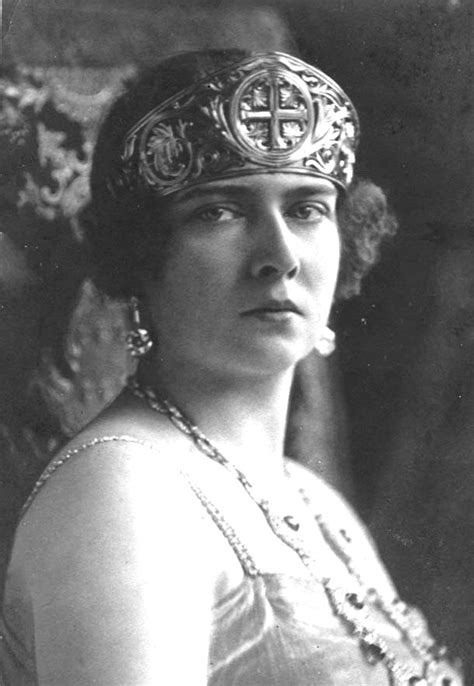

0 notes
Text


















Royal Guests at the Wedding of King Peter II of Yugoslavia and Princess Alexandra of Greece
0 notes
Text
On this day in Wikipedia: Wednesday, 6th September
Welcome, Willkommen, Selam, שלום 🤗 What does @Wikipedia say about 6th September through the years 🏛️📜🗓️?

6th September 2022 🗓️ : Event - Russo-Ukrainian War Russo-Ukrainian War: Ukraine begins its Kharkiv counteroffensive, surprising Russian forces and retaking over 3,000 square kilometers of land, recapturing the entire Kharkiv Oblast west of the Oskil River, within the next week. "The Russo-Ukrainian War is an ongoing international conflict between Russia, alongside Russian-backed separatists, and Ukraine, which began in February 2014. Following Ukraine's Revolution of Dignity, Russia annexed Crimea from Ukraine and supported pro-Russian separatists fighting the Ukrainian..."

Image licensed under CC BY 4.0? by AFU StratCom
6th September 2018 🗓️ : Event - Supreme Court of India The Supreme Court of India invalidated part of Section 377 of the Penal Code, thus legalising homosexuality in India. "The Supreme Court of India (Hindi: भारत का उच्चतम न्यायालय, IAST: Bhārat kā Uccatam Nyāyālay) is the supreme judicial authority and the highest court of the Republic of India. It is the final court of appeal for all civil and criminal cases in India. It also has the power of judicial review. The..."

Image by Government of India
6th September 2013 🗓️ : Event - Cyanide Forty-one elephants are poisoned with cyanide in salt pans, by poachers in Hwange National Park. "In chemistry, a cyanide (from Greek kyanos 'dark blue') is a chemical compound that contains a C≡N functional group. This group, known as the cyano group, consists of a carbon atom triple-bonded to a nitrogen atom.In inorganic cyanides, the cyanide group is present as the cyanide anion −C≡N. This..."

Image by No machine-readable author provided. Benjah-bmm27 assumed (based on copyright claims).
6th September 1973 🗓️ : Birth - Alessandro Troncon Alessandro Troncon, Italian rugby player and coach "Alessandro Troncon (born 6 September 1973 in Treviso) is a former Italian rugby union player. Troncon is the 6th most capped player in Italian rugby union history, and the first Italian to gain 100 caps. The veteran scrum-half made his Italy debut against Spain (62–15) in 1994 and has played..."

Image licensed under CC BY-SA 3.0? by McMarcoP
6th September 1923 🗓️ : Birth - Peter II of Yugoslavia Peter II of Yugoslavia (d. 1970) "Peter II Karađorđević (Serbian Cyrillic: Петар II Карађорђевић, romanized: Petar II Karađorđević; 6 September 1923 – 3 November 1970) was the last king of Yugoslavia, reigning from October 1934 until he was deposed in November 1945. He was the last reigning member of the Karađorđević dynasty. The..."

Image by Daventry (F/O), Royal Air Force official photographer
6th September 1819 🗓️ : Birth - William Rosecrans William Rosecrans, American general, politician, and diplomat, United States Ambassador to Mexico (d. 1898) "William Starke Rosecrans (September 6, 1819 – March 11, 1898) was an American inventor, coal-oil company executive, diplomat, politician, and U.S. Army officer. He gained fame for his role as a Union general during the American Civil War. He was the victor at prominent Western Theater battles, but..."

Image by Brady National Photographic Art Gallery
6th September 🗓️ : Holiday - The earliest date on which the Abbots Bromley Horn Dance is performed "The Abbots Bromley Horn Dance is an English folk dance that probably dates back to the Middle Ages. The dance takes place each September in Abbots Bromley, a village in Staffordshire, England. The modern version of the dance involves reindeer antlers, a hobby horse, Maid Marian and a Fool. ..."

Image by
Voice of Clam
0 notes
Text

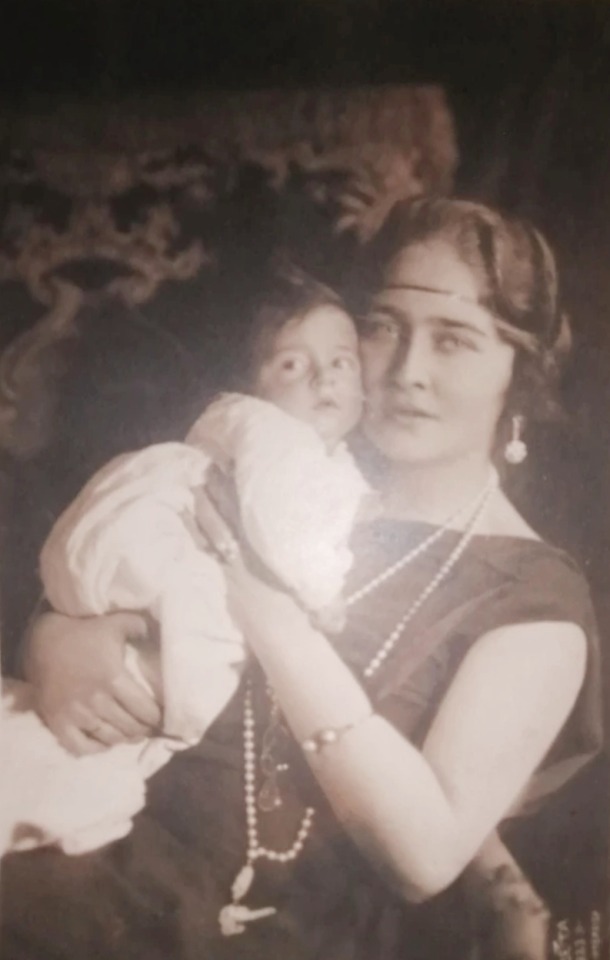

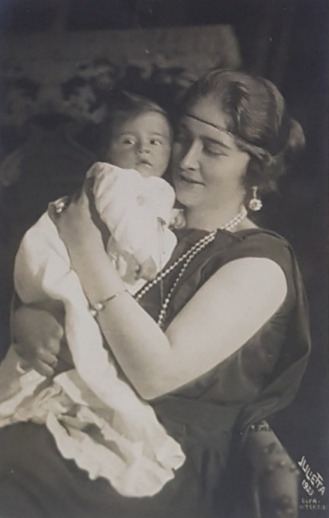
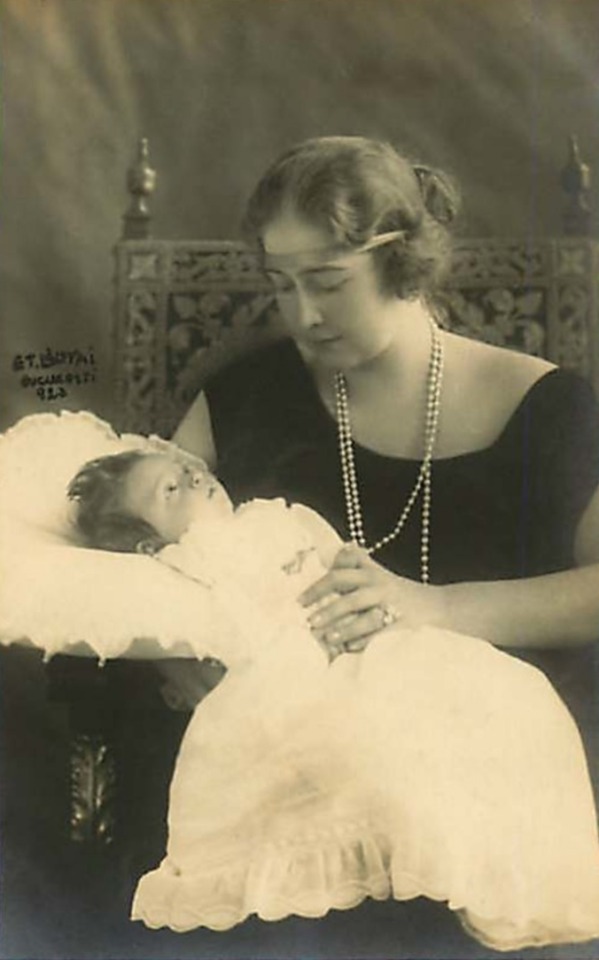
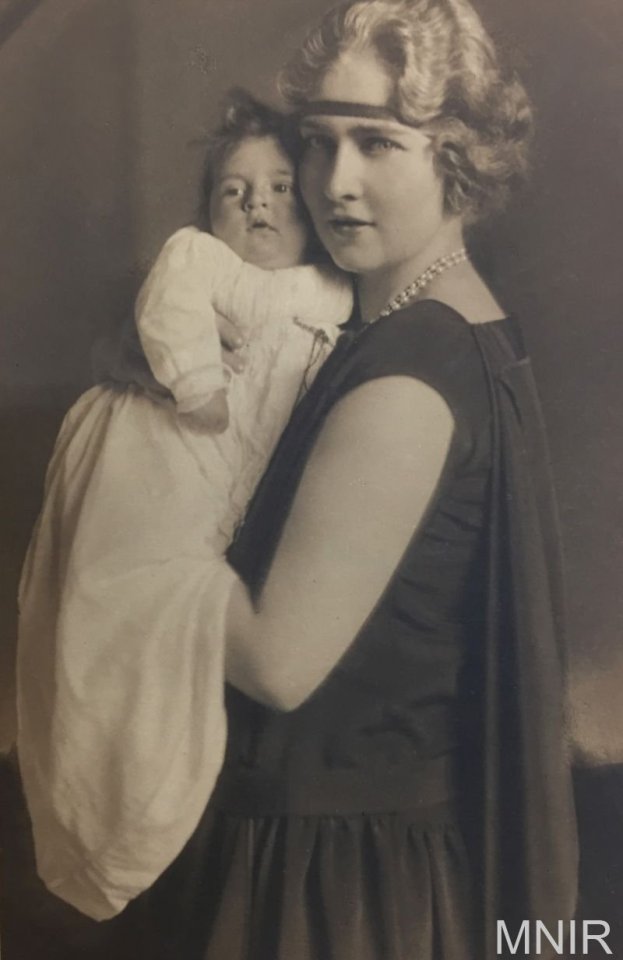
Queen Maria of Yugoslavia with her first born son, baby Crown Prince Peter, 1923.
#queen maria of yugoslavia#king peter ii of yugoslavia#yugoslavian royalty#yugoslavian royal#yugoslavian royal family#1923#1920s
50 notes
·
View notes